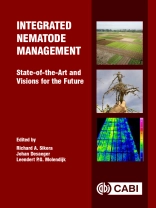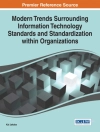Plant parasitic nematodes are costly burdens of crop production, causing an estimated US$80 – 118 billion per year in damage to crops. They are associated with nearly every important agricultural crop, and are a significant constraint on global food security. Regulations on the use of chemical pesticides have resulted in growing interest in alternative methods of nematode control. Future changes in climate, cropping systems, food habits, as well as social and environmental factors also affect the options for nematode control.
Taking a systematic crop by crop approach, this book:
Outlines the economic importance of specific plant parasitic nematode problems on the major food and industrial crops.
Presents the state-of-the-art management strategies that have been developed to reduce specific nematode impacts, and outlines their limitations.
Contains case studies to illustrate impact in the field.
Aims to anticipate future changes in nematode disease pressure that might develop as a result of climate change, and new cropping systems.
Giới thiệu về tác giả
Dr Stirling has 35 years experience in research, has published more than 70 scientific papers and has been made an Honorary Member and Fellow of the Australasian Plant Pathology Society for his services to the Society and to Nematology. He has extensive experience in both temperate and tropical agriculture, having worked in Queensland, South Australia and California on many crops, including wheat, rice, stonefruit, apples, citrus, grapes, pineapples, ginger, sugarcane, tomatoes, potatoes, and other vegetables. Dr. Stirling is recognised internationally for his work on nematodes, particularly biological control, and is also an experienced plant pathologist and soil biologist.












